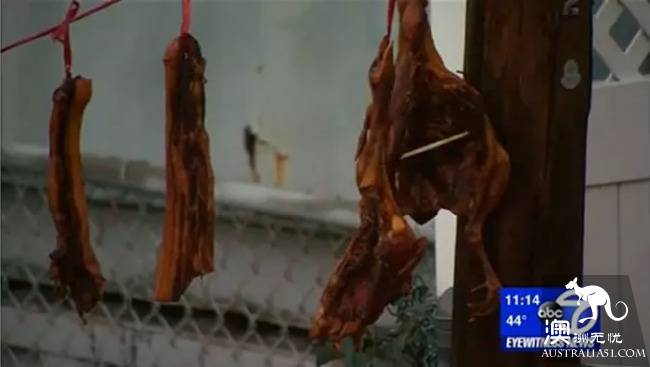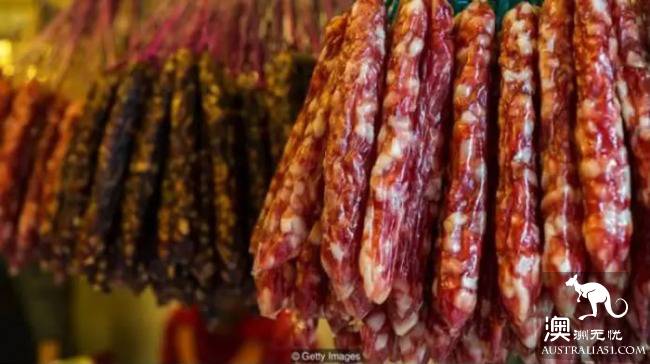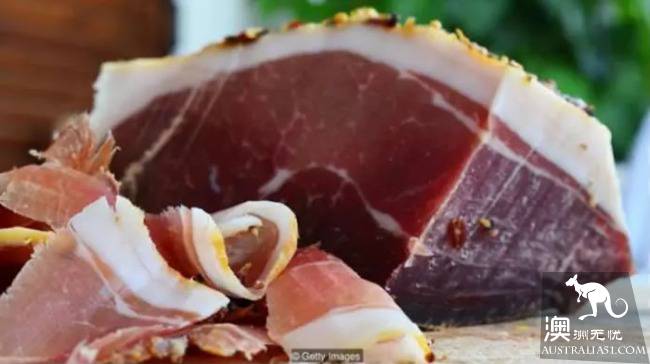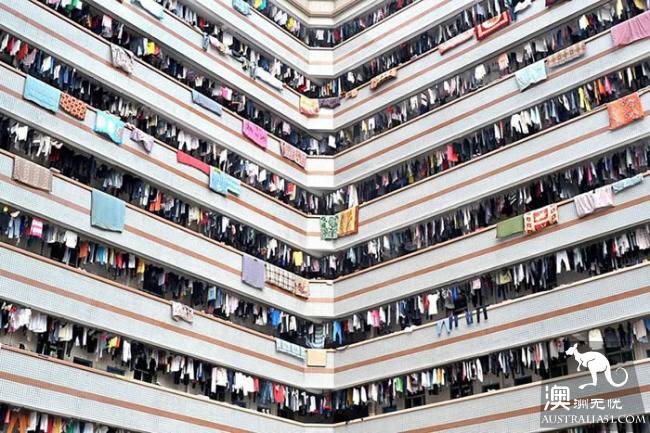On a bright autumn day, a young man in White Rock, Queens, New York, was about to go out when a strange smell came from the neighbor's house. A closer look, the Chinese neighbor's fence hung a line of knotted pork and chicken, and bacon!
What's that?! Why are you hanging?! And the strange smell! What to do with rats and flies! The young man broke down and quickly expressed his concern on social media, which was immediately reported by the local news station.

(photo source: EYEMITNESS NEW)
1. The foreigners were surprised by the fact that the Chinese made pickled meat.
Not only this little brother, the family's home pickled meat caused a lot of discussion in the small village. "I don't feel well when I'm out, because it's unhygienic, and I'm worried that rats will be attracted," said Bianca Kramer, a resident of Baishi.

(photo source: EYEMITNESS NEW)
Chinese neighbors responded that this was for eating, and that's what traditional Chinese bacon does, and nothing wrong with it. Local health authorities also responded that it was legal and did not bother other neighbors.
Local residents have no choice but to take photos and post them on social networking sites, hoping things can be solved.

2. Sources of pickled meat
In fact, pickled meat is very common in Asia. Pickled meat is pickled with salt, also called salted meat, salted meat. Pickled meat is a popular food, because of its delicious taste and long-term preservation, so it is very popular.
In addition to finding salt seasoning along the way, the Chinese also found that salted foods can be stored for a long time without decay, and that pickling has become the most common way to store food in an age when preservation technology is backward. It is particularly common in the south, where the climate is hot and food is prone to spoilage. "Lesser Snow pickled vegetables, snow salted meat," as soon as the snow came, families are busy pickling "salty goods."

(photo source: BBC news)
There are many kinds of bacon, pork dried, dried fish, sausage, ham and so on. When pickling, the blood on the meat, broken meat, lymph nodes, evenly applied on the surface of a layer of salt. The next day then salt, after four or five days, in time to turn over, continue to apply a small amount of salt. Three times of salt brushing is finished for about 25 days.
3. The secret of pickled meat.
A few days ago, BBC reported why pickled meat is not corrupt, "the secret that pickled meat can keep for six years."

(photo source: BBC news)
In China's famous Jinhua ham, for example, the surface of dehydrated meat becomes dry and hard, inhibiting the growth of microorganisms. "if dehydration dries too fast, the surface of the ham will be dry and hard," said Greg Blonder, a professor at Boston University, a scientific consultant. In general, the details of the process vary depending on the local climate. "the secret to making ham is the local landscape," Blonder explained. However, in some warm areas, strict humidity control is the key.

(photo source: BBC news)
According to the Guinness Book of World Records, China's Jinhua ham can be preserved for at least six months, Italy's Culatello ham can be preserved for 1-4 years, the world's most expensive ham is in Spain, and it can be preserved up to six years.
The famous pickled Benedict in Shanghai is made of pickled meat. Pickling is pickled meat, fresh bamboo shoots, Benedict means small slow stew. This dish is a slow stew of fresh meat and spring shoots, taste salty, thick soup white juice, meat, crisp bamboo shoots.
In short, the pickled meat has a history of hundreds of thousands of years. However, because the nitrite content of pickled meat is too high, or eat less, eat more fresh and healthy food.
4. Cultural differences between China and Foreign countries: "Freedom of solarization"
Chinese and foreign for "sun" culture, there is a great difference, why can there be such a gap? This is closely related to Chinese and foreign habits, concepts and regulations.
In addition to salted meat, Chinese people also like to dry clothes and quilts. They believe that sunburned clothes will smell better, ultraviolet rays in the sun can sterilize, environmental protection and energy-saving.
In addition, foreigners in developed countries have been living in industrialized environment for a long time, resulting in the thinking that "all problems are solved with industrial products". I like to use industrial products to solve problems so as to free myself from some of the trifles of life. For example, the popularity of high abroad dishwasher and dryer.
And China's transition from an agricultural country to an industrial country has also been a matter of recent decades, and the development of the light industry has grown in less than 20 years. In the age when our ancestors grew up, they didn't have the financial ability to buy dishwashers and dryers, and they developed the habit of doing everything themselves. Even when economic conditions allow for the purchase of dryers, the habit of deepening people makes them prefer to dress at the balcony.
This is difficult for foreigners to understand.
-disgrace: for most foreigners, drying a wide variety of underwear coats in places that can be seen by the public is a visual disaster that not only destroys the overall beauty of the environment, but is also very indecent.

-affect the value of houses: in order to ensure a clean and beautiful environment in the community, most community associations prohibit drying clothes in the open air, which is more conducive to house prices. Australia, for example, has a new state rule: no clothes and beds are allowed to be seen by the public.
STRATA SCHEMES MANAGEMENT ACT 1996 - SCHEDULE 1
(photo source: New South Wales Repealed Acts)
Don't want to be considered a low-income household: in many people's minds, drying clothes is often to save money or to afford a dryer, one of the low-income performances. They believe that only poor people hang their clothes with laundry lines, and communities drifting around like slums look like slums.
Therefore, the matter of drying things can't be summed up to say that the Chinese "low-quality" such remarks, this is due to a specific cultural background of life habits.